Cat Hissing at Nothing: Discover What's Actually Going On
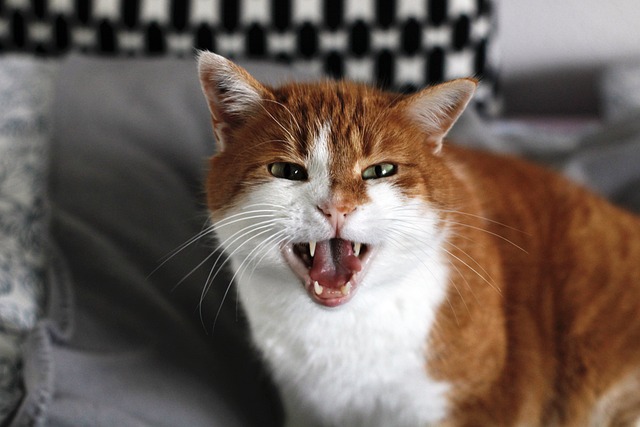
Just imagine:
You're peacefully cuddling with your furry feline, when suddenly you hear a chilling hiss. 😱
Your heart drops and concern floods over you.
Could it be an invisible intruder?
Don't panic just yet, let's uncover the truth together.
Why Is My Cat Hissing at the Wall?
Cats may hiss at walls due to their sharp senses detecting hidden bugs or pests. They can also react defensively to new objects or changes in their environment. Fluctuations in electromagnetic fields might stress them out, potentially causing hallucinations.
If you see your cat hissing at the wall, there could be a few reasons why.
Hissing is like a warning from a cat, telling you to back off or asking what's up.
It's a defensive response, suggesting that your cat senses something fishy in its surroundings.
Cats have razor-sharp senses that can detect even the tiniest hidden bugs or pests - things we might not notice.
So, maybe they're hissing at a little intruder!
Sometimes, new objects or changes in their environment can trigger hissing too.
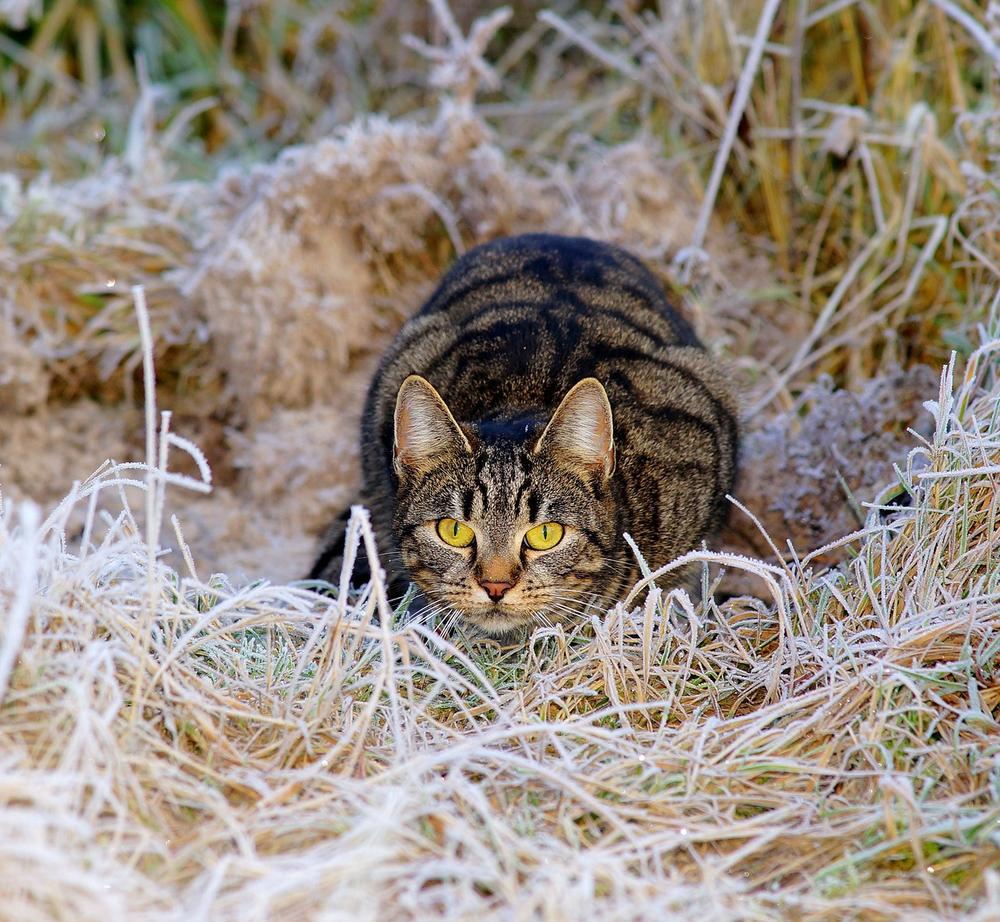
These cats are protective of their territory and get jittery with sudden changes.
Even items like mirrors or figurines can set off their instincts and make them hiss.
Now, let's talk about the big question...
Or should I say, the ghost?
Hissing at the wall doesn't necessarily mean it's a haunted house. But fluctuations in electromagnetic fields (EMF) can stress out cats and potentially make them hallucinate, just like humans.
So, if the hissing continues and you suspect EMF issues, it might be worth looking into.
But hey, now you have some insight into why Whiskers is hissing at those walls!
Main points I'll expand upon further down this article:
- Hissing is a defensive behavior indicating readiness to attack.
- Hissing can be triggered by differences in energy levels or scent.
- Territorial disputes with dogs can cause cats to hiss.
- Cats may hiss due to anxiety, pain, fear, or offensive smells.
- Unfamiliar pets or frequencies beyond human perception can trigger hissing.
- Investigate potential triggers like mice or unfamiliar smells for cats hissing at each other.
- Gradual introductions and providing a safe space can help cats adjust.
- Shorthaired cats are more communicative and may hiss during playtime.
- Hissing can also indicate unhappiness or irritation, often accompanied by growling.
- Hissing and growling can be signs of underlying health issues or discomfort.
And now, let's explore some other reasons why your cat might be hissing, particularly when interacting with other cats in the household...
Why Is My Cat Hissing at Another Cat?
When it comes to cats hissing, there are a few things you need to know:
- Pay attention to your cat's energy levels, as they can trigger hissing. Keep things calm and peaceful to avoid any unnecessary tension.
- Changes in scent can also cause hissing. If you've brought something new into the house, like furniture or another cat's stuff, that could be the issue.
- Cats hiss when they feel anxious or scared, so it's important to identify any stressors and deal with them appropriately.
- Offensive smells can make cats hiss too. Keep an eye out for any unpleasant odors and get rid of them to keep your cat happy.
- Introducing unfamiliar pets can lead to hissing. Take it slow and give each cat their own space to feel secure.
- Cats can react to frequencies we can't hear, causing them to hiss. Just because you can't hear anything doesn't mean there isn't something affecting your furry buddies.
Hissing is a protective behavior.
By understanding the triggers and providing a safe environment, you can ease any tension between your cats. 😺
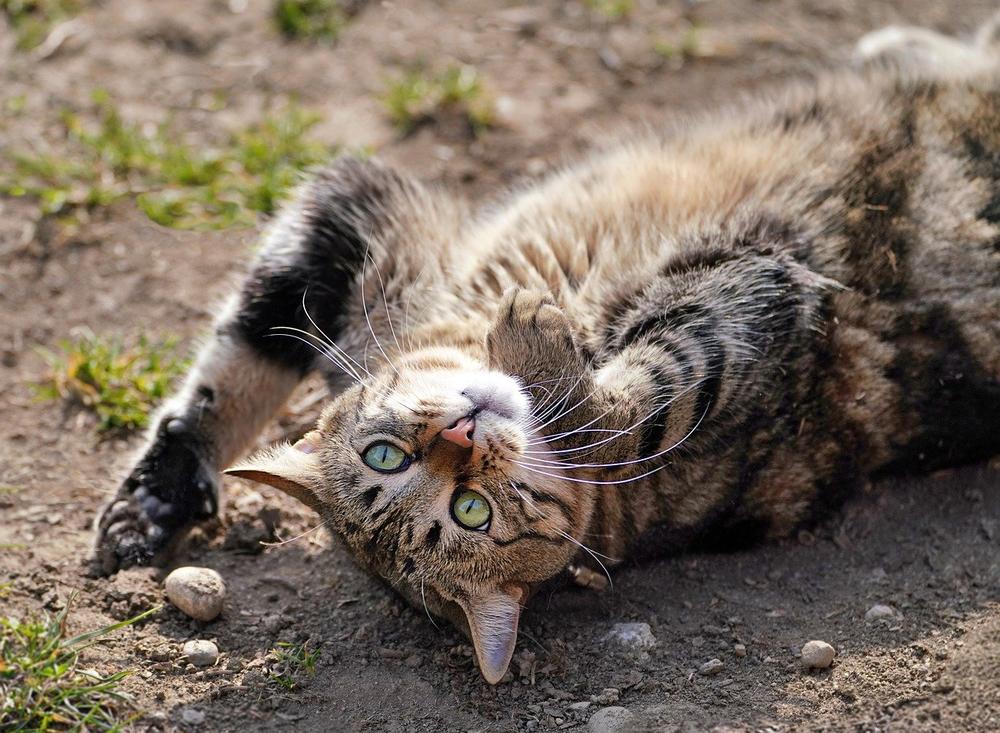
But, understanding why your cat hisses at another cat is just the beginning!
There are many other reasons why cats exhibit this behavior.
Let me break it down for you...
Cat Randomly Hissing While Playing
Why is your cat hissing during playtime?
Here are ten possible reasons:
- Maybe your cat is getting too worked up or frustrated.
- It could be that they need more breaks during play sessions.
- Your cat might not have enough toys or things to keep them stimulated.
- Some shorthaired cats tend to hiss when they're really excited.
- Perhaps your furry friend is just unhappy or irritated about something.
- And if they're growling or displaying other aggressive behaviors, that could be related too.
- Maybe they're afraid of other animals and feel the need to hiss in self-defense.
- It could also be fear stemming from mating season.
- They may be trying to communicate their boundaries to you.
- Lastly, your cat might simply feel threatened for some reason.
Don't worry too much though, hissing is pretty common, but keep an eye out for any troubling behavior or signs of distress.
And if necessary, it's always a good idea to talk to a veterinarian.
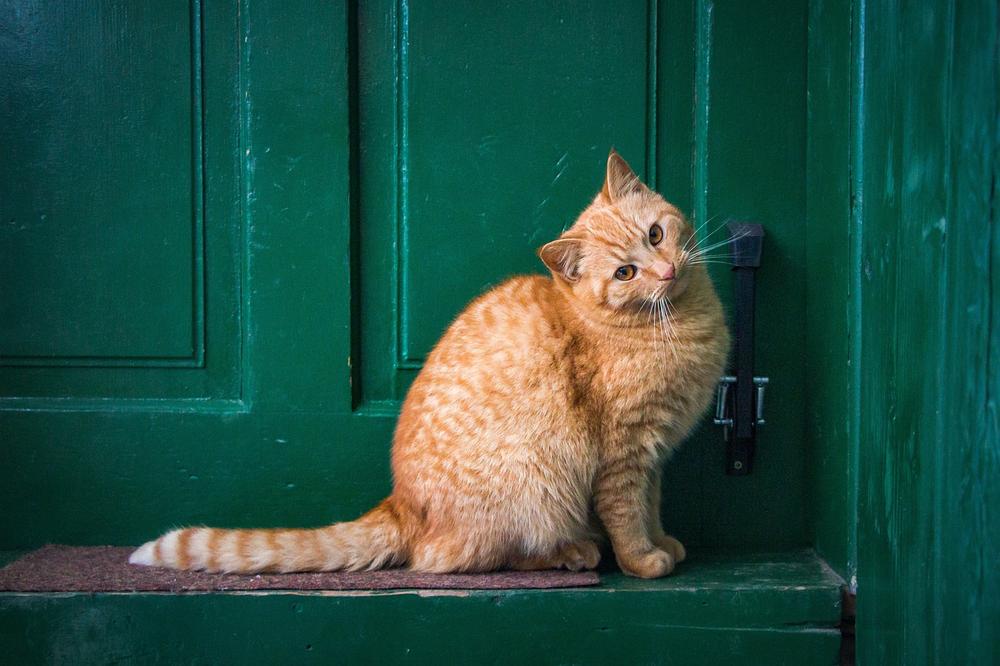
They can help rule out any underlying medical conditions and give you tips on how to handle these hissing episodes.
Sometimes your cat is just expressing its excitement through a little hiss... Don't take it personally.
And if you've ever wondered why your cat is slapping you with its tail, I've got you covered.
In my useful blog post, I delve into the possible reasons behind this behavior, helping you understand if your cat is trying to play or communicate something.
I highly recommend checking out Why Does My Cat Slap Me With His Tail to satisfy your curiosity and gain a deeper understanding.
Why Is My Cat Growling at the Window?
Growling at the window is a common behavior displayed by cats when they sense potential threats outside. These threats can range from pesky critters invading their turf to any disturbance they notice through the window.
As perceptive creatures, cats are quick to react and protect their territory.
This triggers their primitive instincts to growl as a warning or intimidation tactic towards any detected disturbances beyond the glass barrier.
So, next time you witness your feline companion growling with intensity at that window, remember that it's their way of expressing their territorial nature in response to perceived threats.
Reasons for Your Cat's Sudden Hissing and Growling Reaction
Cats may hiss and growl suddenly due to various health issues like arthritis, dental problems, or neurological conditions. However, if these vocalizations become more frequent or intense, you ought to consult a vet to rule out injuries or hidden pain and address any changes in their environment or emotional well-being.
Cats who start suddenly hissing and growling can be dealing with various health issues.
Arthritis, dental problems, thyroid troubles, or even neurological conditions could be behind these vocalizations.
Listen up, I've got something to say about this...
When kittens are learning how to communicate like cats, hissing is totally normal.
They might get scared or feel threatened, resulting in those noises that make us go, Whoa!
But if your cat's hissing and growling has become more frequent or intense lately, it's time to get in touch with your vet.
You need to rule out stuff like injuries or hidden pain.
Has anything changed in your cat's environment recently?
Maybe there's something new that's making them hissssss...
Fear, anxiety, traumatic experiences...all of these things contribute to their hissing and growling tendencies.
You've gotta address their emotions and figure out what's upsetting them.
Regular checkups will give you peace of mind.
Because at the end of the day, we've gotta take care of our beloved furry buddies!
And now, let's dive deeper into understanding how to handle a hissing cat and what it might mean for their well-being.
I want to provide helpful tips on giving them the space they need, recognizing potential triggers, and even exploring ways to alleviate their stress.
So, if you're ready to improve your understanding of your feline friend's behavior, keep reading!
What to Do When Your Cat Is Hissing?
If your cat is hissing, it’s crucial to understand their body language and respond appropriately. Here are some practical tips to handle the situation:
- Give them space: Respect their boundaries and avoid forcing interaction. Forcing them may escalate their aggression or stress levels.
- Proceed with caution: Approach an angry or stressed cat slowly and cautiously. Look out for any signs of injury or distress and act accordingly.
- Reassure them: Back off and give the cat space to calm down and feel safe. This helps in reassuring them and preventing further escalation.
- Consider cat pheromones: Using cat pheromones can be beneficial in relieving their stress. These mimic natural cat hormones that promote relaxation.
Now, let's shift gears and talk about why cats love sitting on laps:
- Desire for connection: Sitting on laps signifies their need for proximity and connection with their owner. 😻
- Seeking attention: Cats enjoy being pampered and receive attention when they sit on laps.
- Comfort and warmth: Laps provide a cozy spot for napping and soaking up body warmth.
- Trust and affection: A cat sitting on your lap indicates trust and affection towards you, creating a bond of mutual understanding.
Understanding your cat's behavior is key to building a strong and loving relationship.
But what should you do if your cat's hissing behavior continues despite your best efforts to understand and address it?
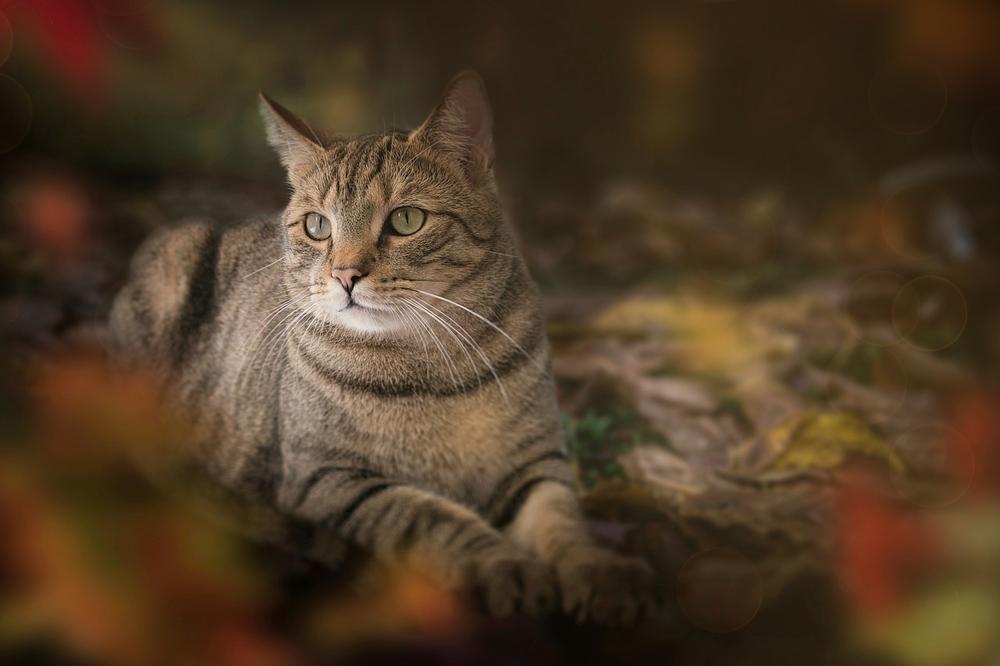
Well, before considering drastic measures or resorting to unusual disciplinary techniques, let's explore a potentially controversial method that some cat owners believe can be effective...
Hissing back at your feline friend.
Should you really engage in such a peculiar form of communication with your furry companion?
Let's dig deeper and find out!
Is It Bad to Hiss Back at Your Cat?
| Possible Reasons for Hissing at Nothing | Potential Solutions |
|---|---|
| Feeling threatened or territorial | Provide hiding spots or elevated areas for your cat to retreat to; create a calm and secure environment; avoid sudden loud noises or disruptions |
| Fear or anxiety | Gradually introduce new experiences or people; use positive reinforcement training to build confidence; provide a safe space for your cat to feel secure |
| Medical issues | Schedule a veterinary check-up to rule out any underlying health problems; follow any prescribed treatments or medications |
| Redirected aggression | Identify and remove triggers that cause your cat to become agitated; redirect their attention to more appropriate outlets for play and stimulation |
| Social or environmental changes | Gradually introduce new people or animals into your cat's environment; provide a routine and predictable schedule to reduce stress |
| Lack of socialization | Gradually expose your cat to different people, animals, and experiences at an early age; use positive reinforcement to encourage social interactions |
| Pain or discomfort | Monitor for any signs of illness or injury; consult a veterinarian if you suspect your cat may be in pain |
| Overstimulation | Recognize your cat's body language and signs of overstimulation; provide them with a quiet and calm space to decompress |
| Previous traumatic experiences | Consult with a professional animal behaviorist to address any underlying emotional trauma and develop a tailored behavior modification plan |
| Territorial disputes with other cats | Provide separate resources and spaces for each cat; gradually introduce them using positive reinforcement; consult with a veterinarian or behaviorist for further guidance |
OK, you're wondering if hissing back at your cat is a smart move or a dumb move. Let's get into it, shall we?
Here's what I've got to say about it.
Listen up, here's the thing: hissing at your cat might just confuse them instead of teaching them a lesson.
Cats are clever creatures, no doubt about it. But here's the kicker—they don't speak human, sorry to bust your bubble there.
So when you hiss like an angry snake, your feline friend might not comprehend what exactly you're trying to convey. And guess what?
It could even make their misbehavior worse.
Yeah, believe it or not!
But hold on a sec before completely ditching the idea of hissing.
There's something you should know, my friend.
Using cat language to communicate with your furry troublemaker can actually work wonders when they're acting up.
Instead of giving them a direct scolding, try a more subtle approach.
Some cat owners have been known to hiss back at their furballs to let them know that whatever they're doing is definitely NOT okay.
But here's the catch:
People have different opinions on this method. It's not a one-size-fits-all solution, you see.
Here's the deal—the context in which you hiss back at your cat matters.
Understanding that growling and hissing are natural behaviors for cats is essential. If you use this technique appropriately, it can help maintain a happy and peaceful relationship with your whiskered companion.
So next time Fluffy decides to act out, give hissing back a shot—of course, in a way that makes sense to a cat.
Who knows, my friend, it just might do the trick and save your sanity!
And that wraps up today's article.
If you wish to read more of my useful articles, I recommend you check out some of these: Why Does My Cat Clean Herself on Me, Why Does My Cat Wait Outside the Bathroom, Why Does My Cat Bite My Face, Why Is My Cat Obsessed With My Face, and Why Is My Cat Ignoring Me All of a Sudden
Talk soon,
-Sarah Davis